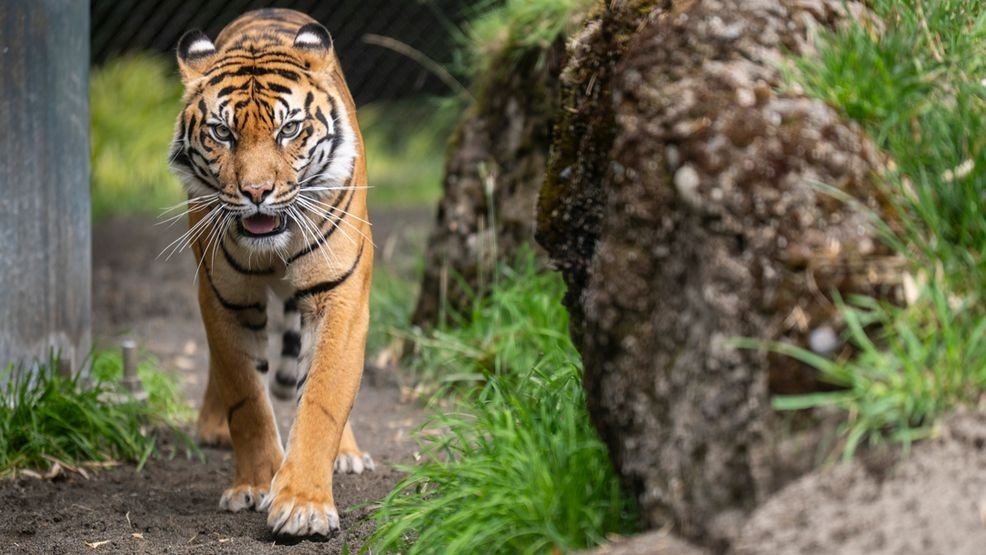TACOMA, Wash. — Mawar, a 6-year-old female Sumatran tiger, is set to make her public debut at Point Defiance Zoo & Aquarium this Saturday.
Born at Taronga Zoo in Sydney, Australia, Mawar recently completed a quarantine period at Memphis Zoo before traveling to Washington.
SEE ALSO | Rare, endangered Malayan tapir calf born at Point Defiance Zoo
“Our team was with Mawar every step of the way to ensure her comfort and safety,” said Telena Welsh, curator of Asian animals at Point Defiance Zoo. “Traveling such a long distance can be stressful, but she handled it incredibly well.”
Mawar’s arrival is the result of an international collaboration involving three accredited zoos and the Association of Zoos & Aquariums’ Species Survival Plan. “International transfers like this are rare and represent a significant achievement in global conservation efforts,” Welsh said in a press release.
Mawar is adjusting well to her new home and will begin exploring her outdoor habitats this weekend. “Mawar is a cautious explorer who likes to thoroughly investigate her surroundings before making herself at home,” Welsh said. “She’s very vocal, often ‘talking’ to her keepers and showing curiosity about the other tigers nearby.”
Mawar joins two other female Sumatran tigers at the zoo: Kali, known for her spirited personality, and Indah, a mellow and social tiger. All three rotate through the habitats in the zoo’s Asian Forest Sanctuary, allowing guests to observe their distinct personalities.
With fewer than 400 Sumatran tigers remaining in the wild, Mawar’s presence at the zoo is part of a broader commitment to conservation. While she doesn’t directly impact wild populations, she inspires public awareness and support, contributing valuable genetic diversity to the North American Sumatran tiger population.
Point Defiance Zoo is a leader in Sumatran tiger conservation, participating in AZA’s Species Survival Plan and partnering with international organizations to support field efforts in Sumatra.
“Animals like Mawar help people connect emotionally with species they may never see in the wild,” Welsh said. “That connection is what inspires action.”

